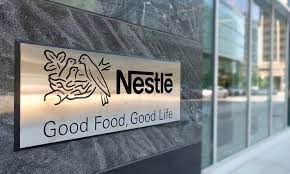By Aaron Miller-
The United States Supreme Court on Thursday awarded a smooth victory to food giants Nestle and Cargill in a lawsuit against the firm claiming they knowingly bought cocoa beans from farms in Africa that used child slave labour.
The case involves a law enacted by the very first Congress in 1789, the Alien Tort Statute, which gives federal courts jurisdiction for lawsuits filed by foreign nationals for torts committed in violation of international law.
According to the U.S. Supreme Court, the Act’s primary purpose was to “promote harmony in international relations by ensuring foreign plaintiffs a remedy for international-law violations in circumstances where the absence of such a remedy might provoke foreign nations to hold the United States accountable.
However, the evolution of law means the courts always use the most recent case law on any given issue to determine the current legal position on that matter. The high court in recent years has limited the use of the Alien Tort Statute.
Most recently, in 2018, the court ruled that foreign businesses cannot be sued under the law. In that case, the court rejected an attempt by Israeli victims of attacks in the West Bank and Gaza to use U.S. courts to sue Jordan-based Arab Bank, which they said helped finance the attacks.
The question for the justices was whether it permits lawsuits against US companies.
The justices ruled 8-1 in favour of the food companies and against a group of six adult citizens of Mali who claimed they were taken from their country as children and forced to work on cocoa farms in neighbouring Ivory Coast.
The justices said an appeals court was wrong to let the group’s lawsuit go forward.
“Although respondents’ injuries occurred entirely overseas, the Ninth Circuit held that respondents could sue in federal court because the defendant corporations allegedly made ‘major operational decisions’ in the United States. The Ninth Circuit erred by allowing this suit to proceed,” Justice Clarence Thomas wrote in a majority opinion for the court.
The companies were not, in fact, legally liable for what happened in Ivory Coast—even though it appeared to constitute a form of child slavery, which is outlawed internationally. The key weakness, they said, was that the case failed to show that a lot of the business decisions leading to child labor happened on U.S. soil.
“Nestlé USA and Cargill are U.S.-based companies that purchase, process, and sell cocoa,” said the decision, written by Justice Clarence Thomas. “They did not own or operate the farms in Ivory Coast. But they did buy cocoa from farms located there,” he wrote. “They also provided those farms with technical and financial resources—such as training, fertilizer, tools, and cash—in exchange for the exclusive right to purchase cocoa.” Even so, he argued that the ATS could not be used outside the U.S.
The case had been twice dismissed at an early stage before being revived by the U.S Court of Appeals for the Ninth Circuit. When the case was argued in December, then-President Donald Trump’s administration backed Nestle and Cargill.
The legal submission from the group from Mali is that Minneapolis-based Cargill and the US arm of Switzerland-based Nestle “aided and abetted” their slavery as children by, among other things, buying cocoa beans from farms that used child labour. The group sued, seeking to bring a class-action lawsuit on behalf of themselves and who they say are thousands of other former child slaves.
held responsible for young children forced to pick cocoa beans up to 14 hours a day for little or no pay, thousands of miles from corporate headquarters.
The ruling dramatically narrowed the prospects of a lawsuit brought by six Malian boys, which has wound its way through various federal courts for more than 15 years. The lawsuit from the boys —now in their 20s—report being forcibly trafficked to cocoa farms in Ivory Coast, where they worked long hours picking beans and sleeping under armed guard to prevent them from escaping, and, in return, were paid little beyond basic food.
Nestle and Cargill have said they have taken steps to combat child slavery and have denied any wrongdoing.
Nestlé USA said in a statement after Thursday’s ruling that the company: “never engaged in the egregious child labor alleged in this suit, and we remain unwavering in our dedication to combating child labor in the cocoa industry.” It said it would continue focusing on “the root causes” of child labor, investing millions in education programs in the cocoa region.
Only a fortnight ago, Nestle was on the receiving end of negative publicity after it was revealed that over 60% of its products did not meet health standards.
Only 37 per cent of Nestlé’s food and beverages by revenues, excluding products such as pet food and specialized medical nutrition, achieved a rating above 3.5 under Australia’s health star rating system.
This system scores foods out of five stars and is used in research by international groups such as the Access to Nutrition Foundation. Nestlé, the maker of KitKats, Maggi noodles and Nescafé, describes the 3.5 star threshold as a “recognized definition of health”.
“We have made significant improvements to our products . . . [but] our portfolio still underperforms against external definitions of health in a landscape where regulatory pressure and consumer demands are skyrocketing,” the presentation said.




